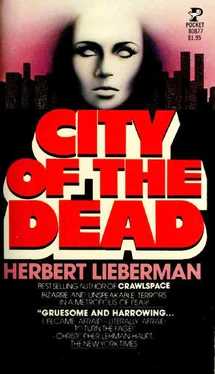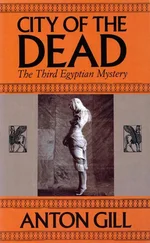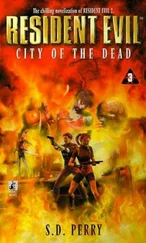“Oh?” Haggard’s eyes roam restlessly about the room. It is a room in which he is distinctly uneasy, a room that is aggressively and expensively comtemporary. It seems to cry out, “I am chic. I am modern. I am with it.” Actually a suite of rooms, it is a tasteful exercise in eclecticism, Louis XVI pieces with a lot of stainless steel and leather, Mies chairs and tole, fine old Sirhouks and Khazaks strewn all about. The cork-lined walls are hung with a variety of paintings.
“She called to say she would be sending some new things. Well, I wasn’t entirely—”
Mr. Anthony Redding chatters on, a nervous, petulant man who talks incessantly. He too, like his gallery, is very chic. Tall, elegant, patrician, the sort of man who sets Haggard’s teeth on edge. A somewhat exotic-looking individual, the great glabrous dome, the compensatory bushy beard flowing out over his throat, the caterpillar eyebrows, the nose, blade-thin and saturnine—all conveying an impression of urbanity and taste. And then the carefully studied attire, the blue denim shirt (not the proletarian blue denim of Navy issue, but rather the blue denim of expensive East Side boutiques) with a red silk foulard tied rakishly around the throat; the exquisitely tailored trousers, tight at the top, flared widely at the bottom, and whispering as he walks. And most grating of all to the detective, born and raised in Coney Island, the obviously affected British accent, carefully cultivated for the titillation of the wealthy uptown matrons who are his stock in trade.
“—thrilled at the prospect of another shipment. As I say, the stuff hadn’t been going well. Listen, is she in some kind of trouble?”
“No—no trouble: These hers over here?”
“Right. Those three gouaches—they’re all I have left. I did much better with the oils. How’d you know they were hers?”
“Aside from the fact that they’re signed Emily Winslow”—Haggard saunters toward a small cluster of paintings—“I recognize the style.”
“Oh?” Mr. Redding trails after the detective, looking startled and a bit uneasy.
Redding is right, Haggard muses, standing, arms crossed, before the three pale gouaches. The pictures are sadder. Certainly sadder than what he saw in the loft on Varick Street. Even in the state those were in, they conveyed a certain vitality, a kind of serene celebration of the grandeur of simple things—sunlight, ocean, great empty beaches running into sky. They throbbed with a kind of life, flora and fauna abounded. These are rather drab, gray, dispirited things. Terminal subjects. Landlocked. No water about anywhere. One, a shack, squatting like a toadstool, lists sideways in a vacant field.
Looking at that field, one has the feeling that once it was verdant, full of mint, phlox, pennyroyal, vervain, fringed gentian, scorpion grass. Now, it is dry, sere, a scorched place where only pauper’s weed will grow. And the shack has a dismal, unsavory air about it. A door hangs open on a hinge and the punched-out windows have the look of eyeless sockets in a skull. An abandoned, derelict place, you imagine it was once the site of some ghastly act. Then another painting depicting merely shards of broken glass. And then—most disquieting of all—a pair of badly soiled underpants lying in a heap in the dirty corner of some tenement privy.
“When you spoke with her,” Haggard continues, his eyes roaming the canvases, “how did she sound?”
“Okay, I s’pose—maybe—”
“Maybe what?” The detective turns and stares at Mr. Redding.
“I don’t know. Listen, what’s all this about anyway?”
“Nothing—absolutely nothing.”
“Oh, come on now.” Redding’s face grows red and cross. “You come in here flashing badges, asking a lot of questions—”
“She’s missing,” Haggard growls. “If I knew more, I’d tell you.”
“How’d you find me?”
“We found her studio a couple of days ago. We knew she was painting. We knew she was selling her stuff through an uptown gallery on the East Side. After that it was just a matter of the Yellow Pages and about eighty patrolmen making a lot of inquiries. What’s your last address for Miss Konig?”
“Miss who?”
“Miss Winslow.”
“That isn’t what you said before.”
So what? Something rude and pugnacious leaps from the detective’s eyes. “You got that address?”
Mr. Redding appears resentful but cowed. He stalks sullenly across the gallery floor to a small Louis XVI escritoire with gold fastenings. From a bottom drawer he extracts a small metal file box. He flicks methodically through it, halts at a place, and snaps out a card. “324 Varick Street.”
Haggard sighs. “Thanks.”
“Anything wrong?”
“Nope—only I already have that address.” He starts out.
“There’s another one here.”
Haggard turns. “Oh?”
“She asked me to send her money to some place up in The Bronx.”
“The Bronx?”
“About two months ago she called and said she wanted all future checks sent to Fox Street, The Bronx. 1622 Fox Street, care of Eggleston.”
“Eggleston.” Haggard scribbles quickly into his pad. “Any first name?”
Mr. Anthony Redding glances back at his card. “W.”
“W?”
“That’s it. Just W. W. Eggleston.”
“I see a large body of water.”
“Yes.”
“Not an ocean. Somewhat smaller. A large river—or a bay, perhaps.”
1:30 p.m. An Apartment on West 55th Street.
Konig sits in a large, shadowy room full of the odors of overstuffed furniture and incontinent cats. He sits at a bare, round, wooden table opposite a woman of Buddhistic proportions with a wen on her nose and a furze of dark hair above her lip.
“I see a small house.”
“Yes.”
“With a garden outside and a small fence around it.” Madam Lesetzskaya leans forward, rocking gently on immense haunches, eyes glazed, lashes fluttering like butterflies above them. She leans into the shadow, craning her neck, as if trying to hear better, words, or a message, coming to her from far away. Konig sits there in the darkened room, behind the drawn curtains, stiffly, warily, a begrudging tolerance upon his face, waiting for her to speak.
A card pressed on him several weeks before by a friend, and carried in his pocket till only that afternoon, had read: “Madam Paulina Lesetzskaya. Budapest, St. Petersburg, Paris, New York. Spiritualist. Mediumist. Confidante and adviser to—” Then a list of mostly defunct and obscure royalty to whom she had ministered—dukes and princes, shahs and potentates, pages to the royal court. Then the tag line, the kicker: “Contact established with the departed and missing. Results guaranteed,” the card promised in the plain, rather unextraordinary verbiage of an exterminator’s calling card promising to rid you of roaches.
The two figures lean toward each other in the damp, malodorous shadows, the one rocking slowly back and forth, the other, stiff, recoiling slightly, as if struggling against the impulse to shout.
The tips of Madam Lesetzskaya’s fingers tremble across the face of Lolly’s birthday card—the shaggy bear in the white copious robes of a doctor, stethoscope dangling absurdly around its neck. Each finger on Madam’s hand has a ring, while depending from her neck is a bezoar stone, a scarab amulet, and a fake jade lavaliere.
“I see several people—three, possibly four—”
“Yes.”
“One female—early twenties.”
“Yes.”
“The others, male, somewhat older. Though there is danger about the house, I don’t sense any immediate danger to the girl.”
Konig sighs, leaning backward, relief flowing over him like a balm. He knows it is all fake, meretricious. That means nothing to him. All he wants now, craves, is the simple analgesic of her words, like the blessed Demerol coursing through his bloodstream.
Читать дальше












